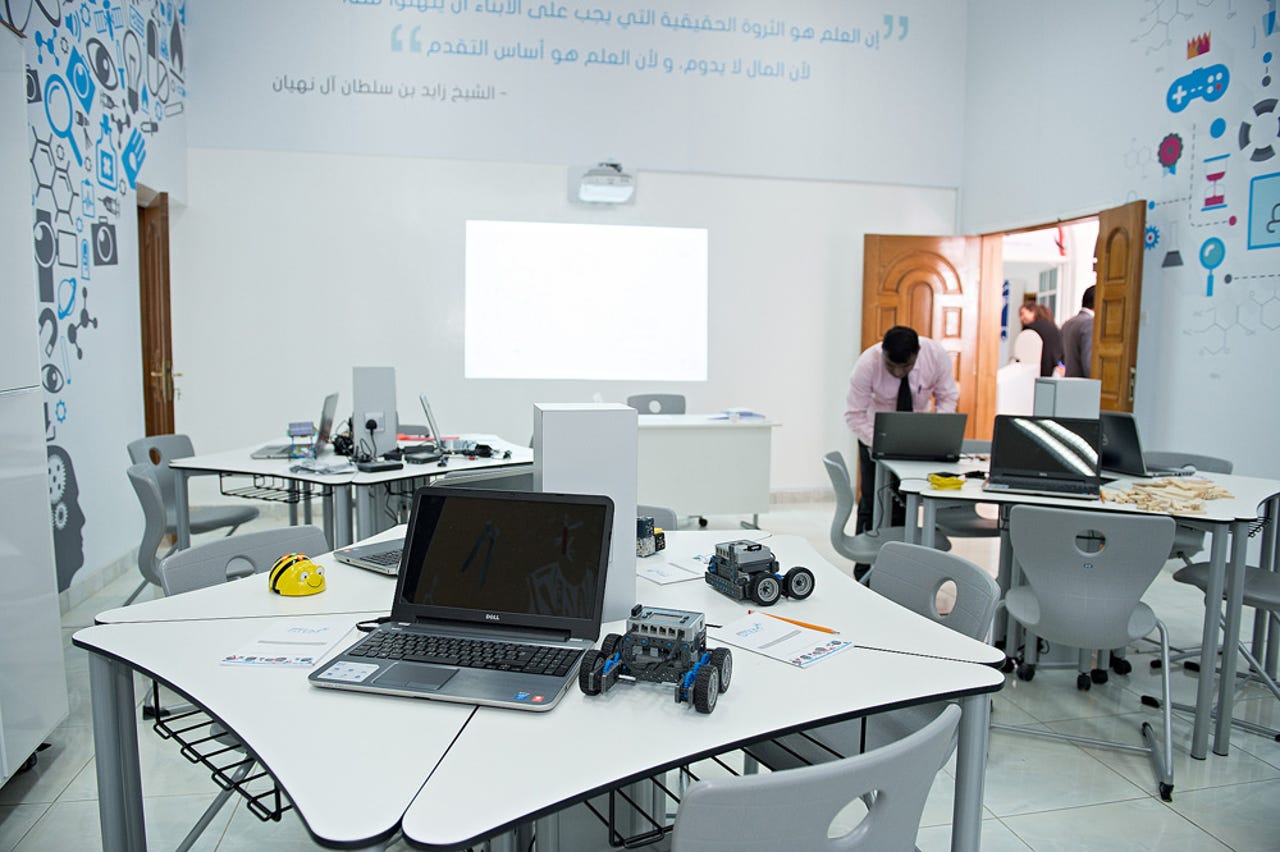Inside Google's UAE Innovation Hub: 'Innovation is in the early days, but we see a huge appetite to learn'


Local efforts are being supported by a US State Department initiative providing opportunities for female STEM professionals, as well as the creation of a new STEM hub run by Google in the north of the UAE.
Dubai Internet City
Based in Ras al-Khaimah, a lesser-known emirate whose name means 'top of the tent' or 'headland of the small hut', it's a long-way from the dizzying heights of Dubai. Nonetheless, the region is home to some of the best Emirati engineers, Sam Blatteis, Google's head of government relations and public policy, Gulf countries, told ZDNet.
The centre "crushes the stereotype that these STEM fields are only for people in larger cities, they can be for everyone in the country," he says, adding the launch "has been really well-received because of its location".
Primary activities
Although "innovation is in the early days, we see a huge appetite to learn," Blatteis told ZDNet.
After its opening in February, the hub is now home to three main pockets of activity, namely: "STEM classes for youth; capacity building for teachers on good practise and STEM pedagogy; [and] a public competition for robotics for youth".
This last project really caught the attention of young people in the UAE. "We would have kids driving two hours each day to get the training," Blatteis says, adding the first graduates were nominated to represent UAE at the World Robotics Competition in Kentucky.
Different elements of robotics, such as programmable and humanoid robots, are among the key activity areas the centre is currently focusing on.
Of these different STEM subjects, Blatteis says that "some of our courses on aviation and drones have been particularly exciting," while "programmable robots has been a big hit, [and] we have a few things on coding which have caught on really well too."
Open to both Emiratis and non-nationals, the centre has a catchment area of around 47,0000 students and 2,500 teachers. Google hopes to train 200 of these local teachers and 500 school children this year, through a mixture of 45 to 90 minute after-school courses and more intensive 10-day bootcamps run during the spring, summer, and winter vacations.
Why Google got involved
For local stakeholders "the issue[s] which came up time and time again were human capital projects and projects which support youth on a large scale," he says, and Google's Innovation Hub aims to address both needs.
"It's not about checking boxes," he adds. "We want to create a permanent hub that will have a lasting impact on the community for decades."
Although the centre has only been open for six months, it is already having that impact.
"We know of at least one school which has started their own robotics school in one of the Northern Emirates," Blatteis told ZDNet. In addition, the company has also seen many people with no background in computer science and robotics become "passionate and enthusiastic about exploring fields that they had not really considered before" after visiting the centre, he says.
A replicable model
As a result of the hub's initial success, a similar model is being deployed in Italy. Although aimed at an older age group than the six-to-14 year olds being targeted in UAE, the Italian approach nonetheless mimics the operating model and public-private partnership established in Ras al-Khaimah.
Meanwhile the wider aspirations behind the UAE initiative are also applicable to other countries and markets too.
"We are trying to grow the overall internet ecosystem of the country," Blatteis says, "and we think that the more we can help to enable people to not just be consumers of technology and ICT programmes, but to also be the builders of it. That's when you can make the leaps forward in developing knowledge status in any country."
With a major focus on elementary and middle school students, Google is continuing to modify and customise programmes at the centre based on the interests and availability of local students.
"We are confident there will be great improvements and advances made," Blatteis says, acknowledging the seemingly "counterintuitive" nature of establishing such a project in the lesser known Northern Emirates.
"It has been such a thrill," he says, "and [we've] seen a lot of amazing ripple effects around the community."
The bigger picture
Given his Gulf-wide brief, this is just one project on Blatteis' radar.
"We're interested in a lot of curriculum and capacity building programs for teachers," he told ZDNet, adding that "we want to popularise ICT skills or life skills, and not only for grad students or tech students."
The Innovation Hub in UAE offers one potential glimpse into the way that Google might seek to tackle and scale this aspiration in the future, alongside other efforts such as Egypt's mobile app development programme, a partnership with AstroLabs to create MENA's first 'Google for Entrepreneurs' Tech Hub in Dubai as well as new Street View initiatives.
"You can be a real differentiator when you look at unconventional ideas," Blatteis says.
Read more